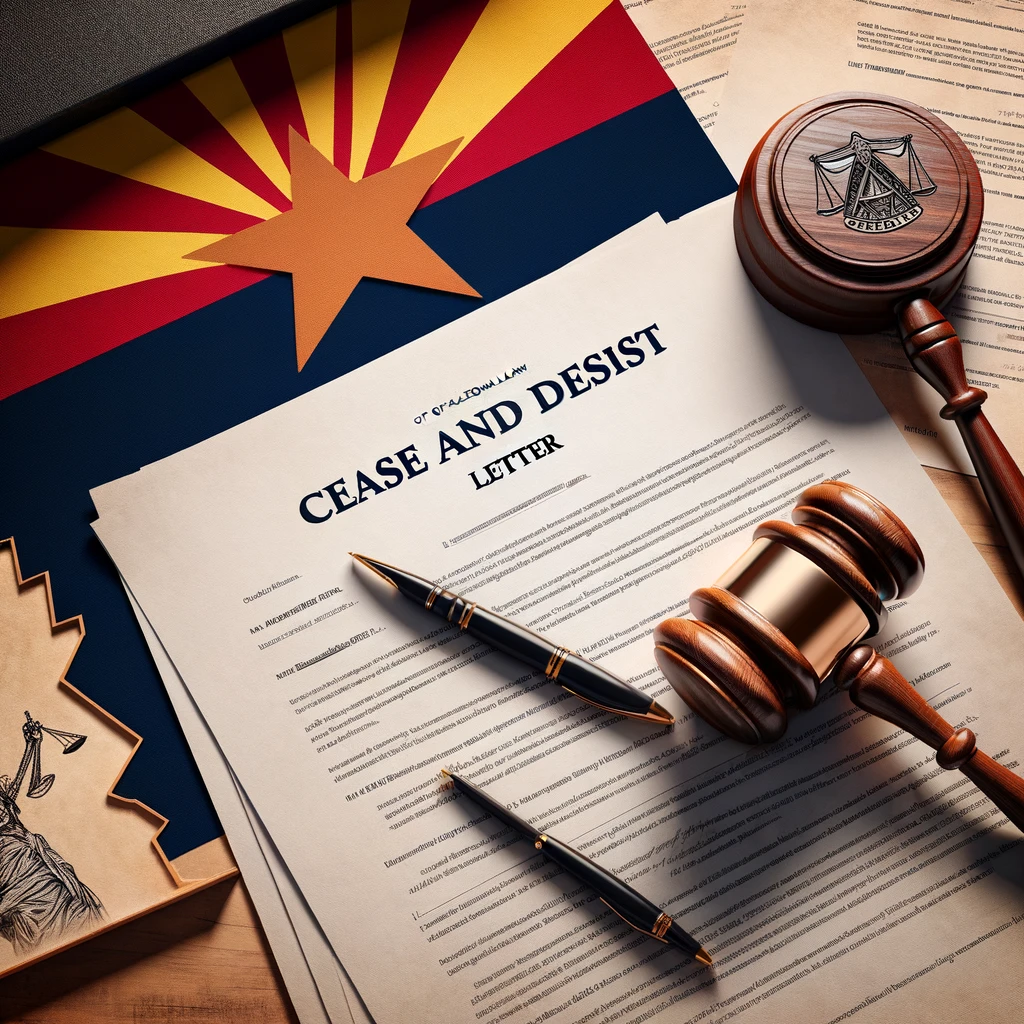Ultimate Guide to Cease and Desist Letters in Arizona: Safeguarding Your Legal Rights
Comprehensive Guide to Cease and Desist Letters in Arizona: Protecting Your Rights and Interests
In the intricate web of legal instruments available to individuals and businesses for protecting their rights, cease and desist letters emerge as a pivotal initial step, particularly in the state of Arizona. These letters, serving as a formal request to stop alleged unlawful activities, lay the groundwork for resolving disputes amicably before escalating to litigation. This guide delves into the essence of cease and desist letters within Arizona's legal landscape, offering insights into their strategic utilization, drafting essentials, and the nuances of responding effectively.
What is a Cease and Desist Letter?
A cease and desist letter is a document sent to an individual or entity to halt purportedly illegal or infringing behavior immediately. While not a legal order, it signifies the letter sender's intent to pursue legal action if the issues are not resolved. In Arizona, these letters are commonly employed in scenarios involving copyright infringement, harassment, trademark disputes, and other forms of unauthorized use of intellectual property.
Legal Authority and Framework in Arizona
The authority to issue a cease and desist letter doesn't stem from a specific statute but is rooted in common law principles protecting rights and properties. Arizona's legal system recognizes these letters as a legitimate step towards safeguarding one's interests against infringement or harm. For detailed statutes and legal definitions, the Arizona Revised Statutes provide a comprehensive legal framework.
Drafting a Cease and Desist Letter: Key Components
Effective cease and desist letters should be clear, concise, and legally sound, containing:
Identification of the Infringement: A detailed description of the alleged unlawful activity or infringement.
Legal Basis: Reference to specific laws or rights that the activity infringes upon, such as the United States Copyright Act for copyright infringement cases.
Demand for Action: A clear and unequivocal demand for the infringing party to cease their activities.
Deadline for Compliance: A reasonable timeframe within which the recipient must comply or respond.
A Statement of Further Action: An indication of the sender's intent to pursue legal remedies if the situation is not rectified.
Responding to a Cease and Desist Letter in Arizona
Receiving a cease and desist letter can be unsettling. The recipient should:
Carefully Review the Letter: Understand the allegations and the legal basis cited.
Seek Legal Advice: Consult with an attorney to assess the validity of the claims and explore options. The State Bar of Arizona offers resources for finding legal assistance.
Consider Compliance: If the claims are valid, ceasing the alleged activity may be the wisest course of action.
Respond Appropriately: Draft a response that addresses the claims, possibly disputing inaccuracies or agreeing to certain terms, under legal counsel's guidance.
Legal Implications and Potential Consequences
Failure to comply with a cease and desist request could lead to litigation, with potential legal penalties, including damages and injunctions. The outcome of such cases depends on the specific circumstances and the strength of the legal arguments presented.

Best Practices for Utilizing Cease and Desist Letters
Tailor to the Specific Situation: Generic templates should be avoided in favor of letters that address the particular nuances of each case.
Maintain Professionalism: The tone should be firm but professional, avoiding any language that could be construed as threatening or harassing.
Documentation: Keep thorough records of all communications, as these can be crucial in any subsequent legal proceedings.
Educational and Governmental Resources
For those seeking to learn more about cease and desist letters and related legal topics, several educational and governmental resources offer valuable information:
Legal Information Institute: Provides an extensive legal encyclopedia and access to legal documents and cases.
United States Patent and Trademark Office (USPTO): Essential for intellectual property disputes, offering guidelines on copyrights, trademarks, and patents.
Arizona Judicial Branch: Offers resources on Arizona's court system and access to legal forms and documents.

Create & Review Your Contracts 10x Quality and Ease
Lawyer-level AI handles all your contract needs, with real lawyers providing safeguarding support

Conclusion
Cease and desist letters play a crucial role in the Arizona legal landscape, offering a preemptive measure to address disputes. Understanding how to craft and respond to these letters effectively can help protect your rights and avoid the escalation into more costly and time-consuming litigation.
By adhering to the outlined best practices and utilizing the provided resources, individuals and businesses can navigate the complexities of cease and desist letters with confidence, ensuring their legal interests are adequately protected.
For further exploration of legal strategies and protection measures, the Arizona State Library, Archives & Public Records offers access to a wealth of legal research materials and guides.

